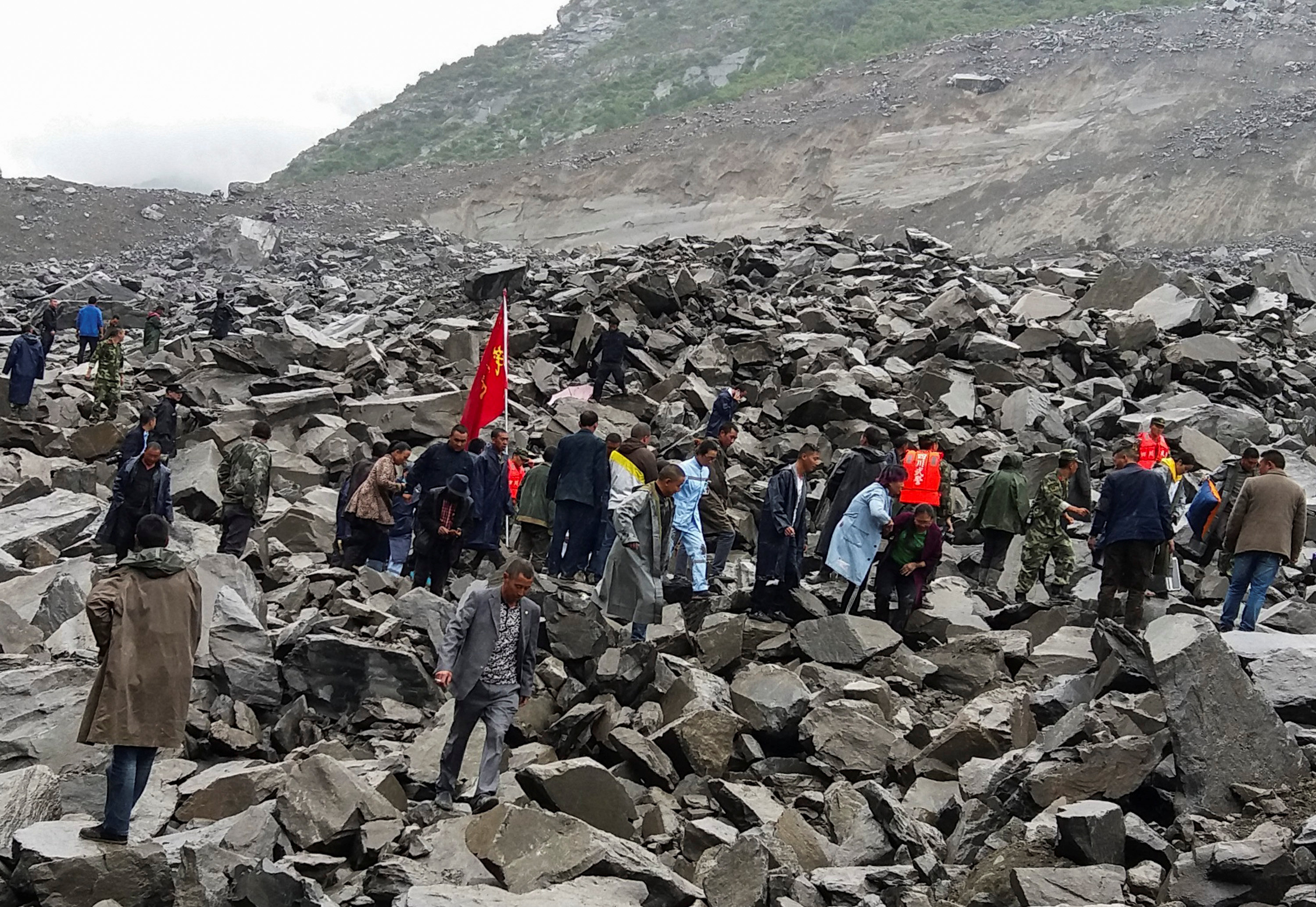
Fears grew for 141 people missing in China after a landslide buried their mountain village in southwestern Sichuan province on Saturday, with reports that only three survivors had been pulled out of the mud and rock hours after the calamity struck.
The landslide swept over 46 homes as dawn broke at around 6am in Xinmo village in Maoxian county, a remote mountainous area of north Sichuan close to the region of Tibet, according to the official Xinhua state news agency.
President Xi Jinping urged on the rescue effort, but state broadcaster CCTV reported that by midday the only people rescued were a couple and their two-month-old baby.
Xinhua said the estimated number of missing was provided by local authorities.
The landslide blocked a two-kilometre (1.24 miles) stretch of a nearby river and 1.6 kilometres of road, according to Xinhua.

State television reports showed villagers and rescuers scrambling over mounds of mud and rocks that had slid down the mountainside. Xinhua said there were 400 people involved in the rescue effort and 6 ambulances were at the scene, and more were on their way.
The television images showed water thick with mud flowing over the site, submerging a car pushed from the road, while police and residents pulled on ropes to try to dislodge large boulders.
Police have closed roads in the county to all traffic except emergency services, the news agency said.
There is an extensive network of dams in the region, including two hydropower plants in Diexi town near the buried village.
A researcher from the Chengdu Chinese Academy of Social Science, a state-backed think tank, told China Radio International that heavy rainfall probably caused the slide. The researcher, whose name wasn't given, also warned of the risk that a dam could collapse, endangering communities further downstream.
The area is prone to earthquakes, including one in 1933 that resulted in parts of Diexi town becoming submerged by a nearby lake, and an 8.0 magnitude tremor in central Sichuan's Wenchuan county in 2008 that killed nearly 70,000 people.












